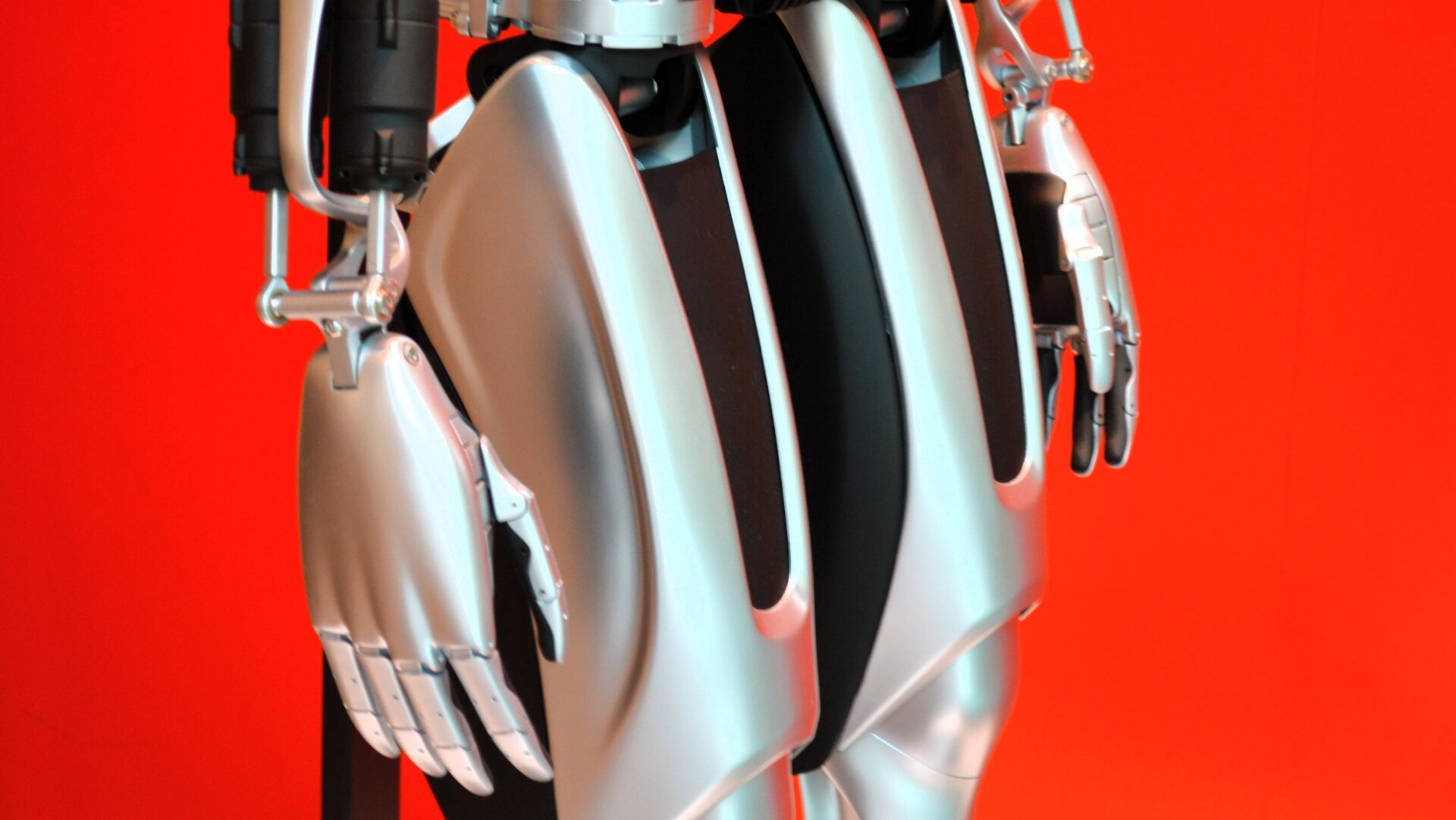China has officially launched its first humanoid robot football league. And while the players may not breathe, they’re already learning to dribble, shoot, fall, and get back up.
The RoBoLeague, which began on June 28, 2025 in Beijing, pits AI-controlled humanoid robots against each other in fully autonomous 3-on-3 soccer matches. The first match featured robot teams developed by Tsinghua University and China Agricultural University. Tsinghua’s squad won the game with a final score of 5-3.
The robots were provided byBooster Roboticsand are roughly equivalent in capability to 5- or 6-year-old children, according to videos posted online. But unlike your average kindergartener, these bots play without any human guidance. Every move, from chasing the ball to strategizing gameplay, is powered by artificial intelligence.
At first glance, it might sound like a publicity gimmick. But it’s not. This match was the first of its kind in China: a fully automated soccer game where humanoid robots operated entirely on their own. And it’s just the beginning.
Behind the friendly scoreline is a deeper ambition. China is betting that competition, especially in sports, will help accelerate advances in humanoid robotics and AI, turning its robot athletes into smarter, more stable, and more agile machines that could one day work in warehouses, elder care, or even the military.
The RoBoLeague is part of a broader national push. In April, Beijing hosted a half-marathon where humanoid robots attempted to run 21 kilometers alongside humans. One bot finished the race in 2 hours and 40 minutes, well behind the human winner, but a significant achievement nonetheless. In May, a martial arts match between two humanoid robots took place in Hangzhou. In August, Beijing will host the World Humanoid Robot Games.
Each match in the RoBoLeague is played on a small soccer pitch using three robots per side. These robots use integrated AI systems to make real-time decisions, from ball tracking to player positioning and goal attempts. They’re programmed to operate without human control and can even recover after being knocked over or falling during play.
Still, the robots are far from perfect. Video clips of the match show frequent falls, awkward tackles, and plenty of unintentional collisions. The organizers admitted that the robots struggle with object tracking, especially keeping track of a fast-moving soccer ball, and navigating obstacles. To compensate, rules were adjusted. Minor collisions aren’t penalized, and robots that become incapacitated can be swapped out.
But there are signs of rapid progress. The organizers said the bots now generate their own strategies using AI, with no human input.
China sees humanoid robots as a key sector in its race for global tech dominance. According to the China Institute of Electronics, the domestic humanoid robot market is expected to grow to 870 billion yuan (roughly $120 billion) by 2030. To get there, Beijing is pouring money and policy support into robotics startups. The hope is that, through competitions like the RoBoLeague, China can accelerate the development of robots that walk, think, and act more like humans.
Sports, it turns out, are a perfect training ground. They require balance, reaction time, coordination, and teamwork. All the things that humanoid robots still struggle with.
But as they keep playing, falling, and learning, the bots will only get better.
Get the best tech, science, and culture news in your inbox daily.
News from the future, delivered to your present.
Please select your desired newsletters and submit your email to upgrade your inbox.
By promising to pay for AI failures, the Chinese EV giant is challenging Tesla's "use at your own risk" model.
'Walt Disney—A Magical Life' puts a spotlight on the Disney creator at a new attraction opening July 17.
Imagineering has made its maker for 'Walt Disney - A Magical Life,' which debuts this week at the original Disney park.
Shiyan-28B finally appeared in an unexpectedly low orbit, but its mission remains unclear.
As the AI chipmaker rockets past a $4 trillion valuation, CEO Jensen Huang lays out a stunning vision of a future with robot assistants and revived American factories, but admits the transition won't be painless.
In a Q&A with Gizmodo, the billionaire investor explains why AI is about to change your job and why crypto still hasn’t delivered on its promise.



 Motivational
Motivational 22 Jul, 2025
22 Jul, 2025 Eleanor Reyes
Eleanor Reyes